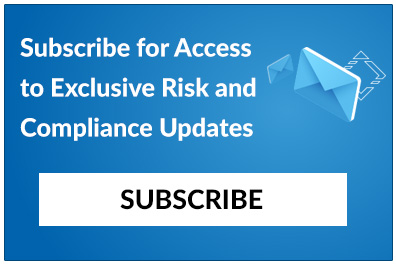Home/ Blog / Essential Regulations for Mortgage Compliance Management
Mortgage compliance is critical to success for a mortgage professional, regulator, broker, lender, or regulatory attorney. Furthermore, laws change, and businesses must be ready to adjust quickly. To successfully manage regulatory compliance, firms should know how regulatory requirements affect business operations and adhere to industry best practices.
On the other hand, mortgage firms must follow various state and federal regulations. It may appear challenging at times to keep everything under control.
However, you should know that you are not alone in mortgage compliance management. We have compiled a list of 5 key regulations to assist you.

1. RESPA GFE and HUD-1 Disclosures
RESPA amended the Good Faith Estimate (GFE) guidelines, which mortgage firms must submit to borrowers at settlement. Three days after receiving the loan application, mortgage providers must offer a reasonable estimate of the total closing expenses in a real estate transaction. Legal fees, title searches, title insurance, recording fees, notary services, pest, and home inspections, document preparation, taxes, and survey fees are examples of such expenses.
RESPA also prohibits lenders from accepting kickbacks on loans or requiring borrowers to utilize a particular title company.
HUD-1 Disclosures, on the other hand, include the actual closing expenses (as opposed to Good Faith Estimates), and the lender should provide the borrower with 24 hours to study the HUD-1 form before the settlement.
2. The Home Ownership Protection Equity Act (HOPEA) and the State High-Cost Loan Program
The HOPEA Act, approved by Congress in 2013, mandates mortgage lenders to offer more information to buyers of high-priced properties. Purchase money, refinancing, closed-end home equity loans, and open-end credit plans are among the mortgages covered under HOPEA. Furthermore, states also have lending restrictions that relate to high-cost home loans.
3. Restrictions on State Consumer Credit and Fees
States and municipalities frequently enact consumer credit rules against predatory lending. They often have fee limitations, and they also have authority over lending licensing rules and regulations. With several state regulations, it may be challenging for financial institutions that function in multiple jurisdictions to adhere to the varied standards.
4. Audits and Due Diligence
Compliance for mortgage lenders is more than simply obeying the “letter of the law.” The significance for mortgage businesses is to adhere to the same degree of compliance as banks. Furthermore, this includes doing due diligence, analyzing the risk of identity fraud, appointing compliance officers, and teaching staff on compliance issues. It entails adhering to anti-money laundering legislation and filing Suspicious Activity Reports.
5. Audits of TRID Disclosure
The Dodd-Frank Wall Street Reform and Consumer Protection Act includes TRID (TILA-RESPA Integrated Disclosure). TRID mandates mortgage lenders to integrate the Truth in Lending Act information they offer customers when applying for and closing on a mortgage with the Real Estate Settlement Procedures Act (RESPA) information lenders should now disclose to borrowers at settlement.
Such disclosure standards pose significant challenges to the mortgage sector, as they pertain to most closed-end mortgages. The Consumer Financial Protection Bureau pledged another regulation on this topic in April 2017 that would explain some of the issues mentioned by respondents during the public comment period .
Regulatory compliance management software streamlines and automates many routine tasks and workflows, making it more efficient to comply with the appropriate laws, rules, and industry standards. Compliance standards differ by industry and nation. However, in countries with a vibrant commercial and economic landscape, establishing regulatory compliance is a fundamental need for every sector and enterprise.
The Predict360 Risk and Compliance Intelligence Suite for Mortgage Bankers
The Predict360 Risk and Compliance Intelligence Suite combines multiple compliance tools under one platform. These risk and compliance tools can be used by mortgage lenders as a part of the platform or independently.
- Compliance Monitoring and Testing with Regulatory Risk Management
- Issues and Complaints Management
- Regulatory Change Management
- Regulatory Examination and Findings Management
- Policy & Procedure Document Management
- Training Management (LMS)
- Enterprise Risk Management (ERM/ORM)
- Risk Management and Assessments
- Risk Insights with Key Metrics Engine (KRIs)
- Issues & Incidents Management
- Content Plugins
- Third Party Risk Management

Interested to know more about the Predict360 risk and compliance intelligence suite? Contact us for a complimentary demo of Predict360, our American Bankers Association (ABA) endorsed risk and compliance management platform.
Request a Demo
Complete the form below and our business team will be in touch to schedule a product demo.
By clicking ‘SUBMIT’ you agree to our Privacy Policy.



